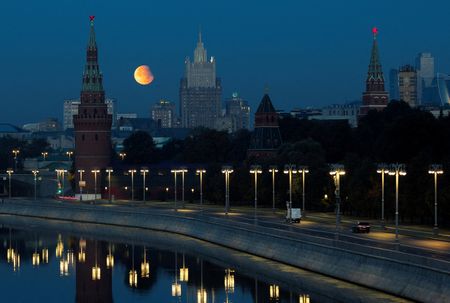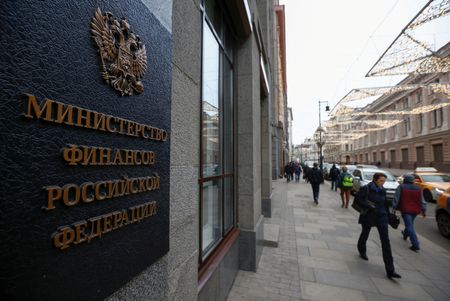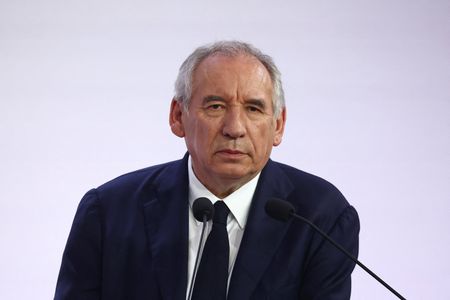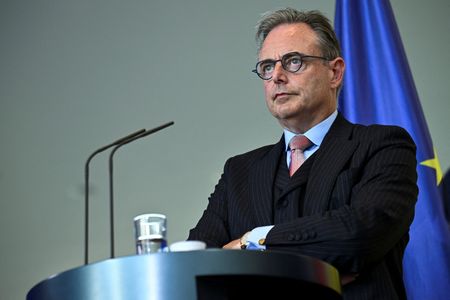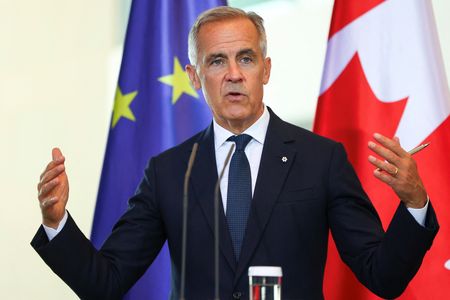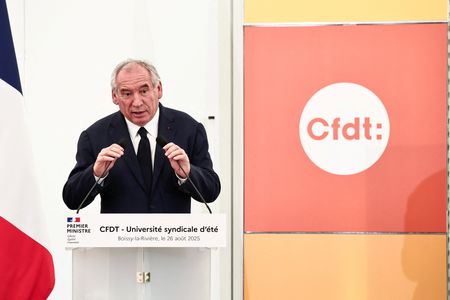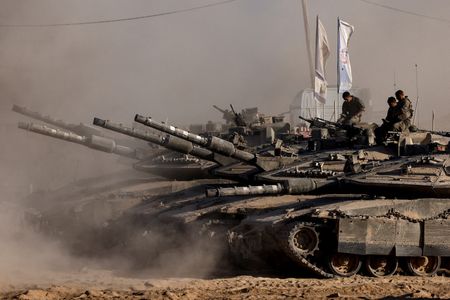By Darya Korsunskaya and Gleb Bryanski
MOSCOW (Reuters) -The Russian government plans to tap its fiscal reserves for 447 billion roubles ($5.51 billion), or about 1/10th of their liquid assets, to balance the budget in 2025 after a threefold increase in the deficit, the finance minister said on Tuesday.
The finance ministry raised the 2025 budget deficit estimate to 1.7% of gross domestic product last week from 0.5% after reducing the energy revenues forecast by 24% due to expectations of a prolonged period of low oil prices.
The move, taken as global oil prices hit their lowest level in four years, reversed the ministry’s initial plan to replenish the reserve National Wealth Fund (NWF) this year and forced it to look for sources to cover the deficit instead.
“Overall for the year, based on forecast data from the Ministry of Economy, which we used as a basis for the federal budget adjustment, we expect to use 447 billion roubles from the National Wealth Fund,” minister Anton Siluanov told a news conference.
The liquid assets of the NWF stood at 3.3 trillion roubles, or $39 billion, last month after dropping by about two-thirds since the start of the war in Ukraine in 2022. The fund is projected to receive over 1 trillion roubles in extra revenues from 2024.
NO EMERGENCY MEASURES
Siluanov said the government was not planning any emergency measures such as raising taxes this year. Neither is the ministry planning to increase its borrowing plans. Siluanov earlier said defence spending will not be touched.
“This year, I hope we will manage without taking extraordinary measures during the budget execution process,” he said. Many economists, however, see such measures as inevitable in the coming years.
Seeking ways to counter the oil price shock, Siluanov proposed to save more oil revenues by lowering the “cut-off” price of oil, above which all energy revenues are set aside for a rainy day, in the next three-year draft budget.
The initiative would have ensured at least a three-year coverage of budget spending if the oil price remains low for an extended period, but also implied a reduction in spending as the military operation in Ukraine continues.
Siluanov’s comments on Tuesday suggested the idea was shelved for the time being. With the current cut-off price at $60 per barrel, at the projected average price for Urals blend at $56 this year, no money can flow into the fund.
“In the projections for the next three-year budget, a change in the cut-off price will not be provided for,” he said.
Russia is the world’s second largest oil exporter with energy making up one fifth of the budget’s total revenues. U.S. President Donald Trump said on Tuesday that with lower oil prices, Russia is more eager to settle the Ukraine war.
CHEAP MONEY
The strong rouble, which has rallied by about 40% against the U.S. dollar this year, mostly on expectations of a peaceful settlement in Ukraine in an unprecedented decoupling from the oil price, has added to the budget woes.
The oil price calculated in roubles fell in early May to a two-year low below the 4,000 rouble per barrel mark, about 40% lower than planned in the budget, according to Reuters calculations.
Siluanov said stalled imports, as domestic buyers of foreign goods struggle to secure loans at high domestic interest rates and face international payment problems caused by Western sanctions, were a key factor behind the rouble’s strength.
Sales of foreign currency, predominantly the Chinese yuan, from the National Wealth Fund, which resumed in April to cover the budget shortfall, have also supported the rouble in recent weeks.
Siluanov said that eventual monetary policy easing will enable importers to take more loans and push the rouble lower. A weaker local currency generally helps to fill state coffers for exporting countries.
“If the money becomes cheaper, it will affect the exchange rate,” Siluanov said, pledging that there will be no changes to the foreign currency regulation, which includes mandatory sales of foreign currency by exporting companies.
($1 = 81.1455 roubles)
(Reporting by Gleb Bryanski and Darya KorsunskayaEditing by Andrew Osborn and Leslie Adler)

